Walk-In visits available - Call Now
🏷️ New Client Offer: $25 Off First Exam
Walk-In visits available - Call Now
🏷️ New Client Offer: $25 Off First Exam
A pet's dental health affects their overall well-being. Prevent tooth decay, gum disease, and other serious health issues by routinely getting your pet's teeth cleaned.
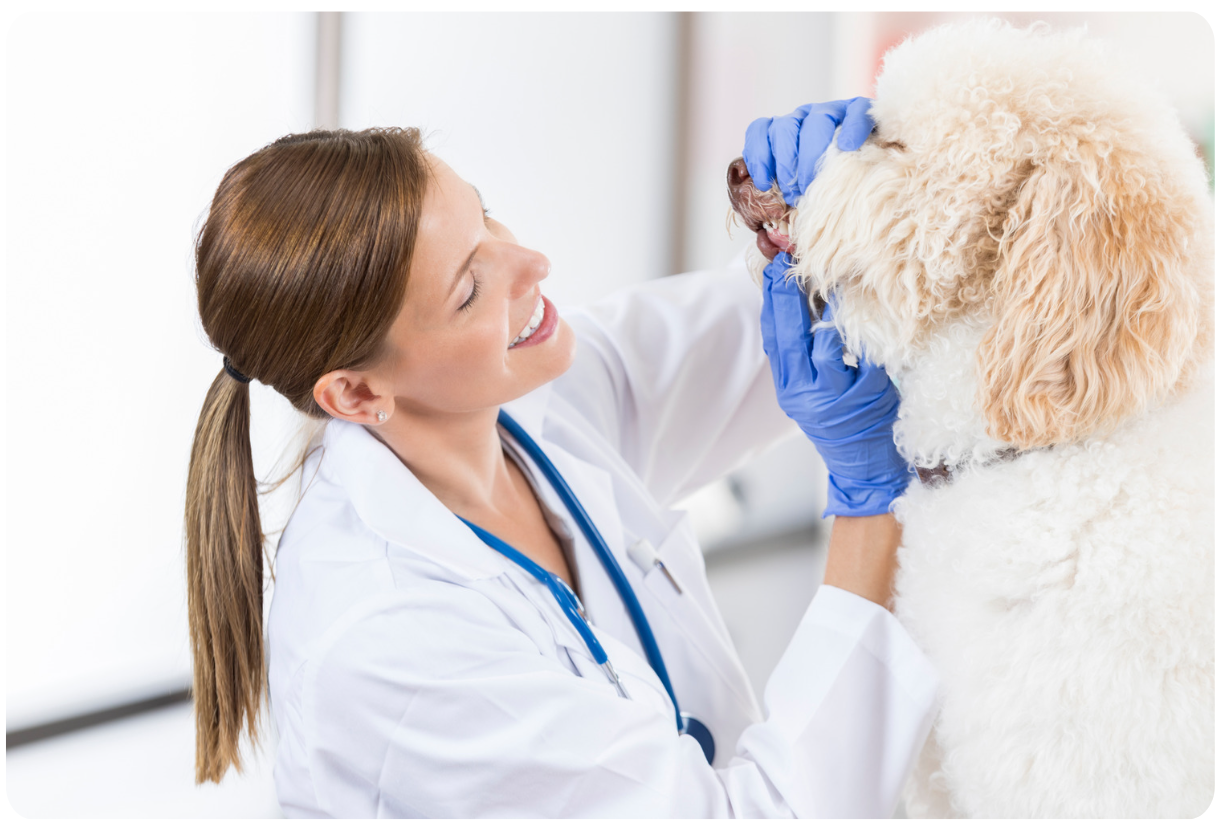
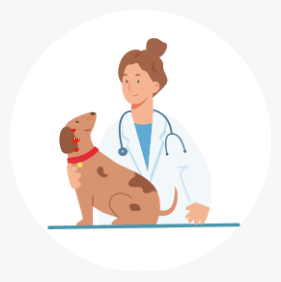
Of the health problems seen by vets have ties to dental disease.
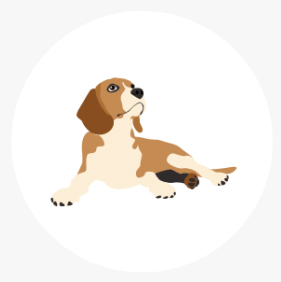
Have some form of dental disease by the age of 3.
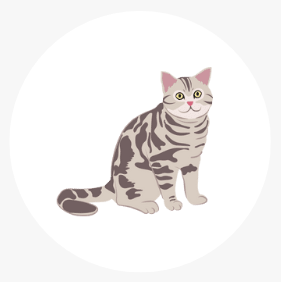
Have some form of dental disease by the age of 3.
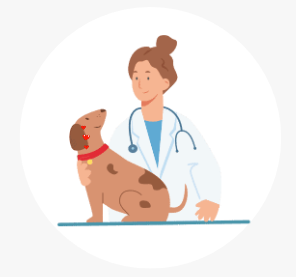
75% or more
Of the health problems seen by vets have ties to dental disease.
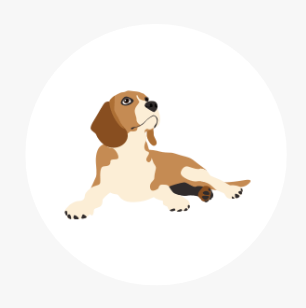
80% of dogs
Have some form of dental
disease by the age of 3.

70% of cats
Have some form of dental
disease by the age of 3.

Veterinary anesthesia refers to the administration of anesthesia to pets by a veterinarian. Unlike humans, animals often require anesthesia for a broader range of situations, as they are unable to cooperate with certain diagnostic or therapeutic procedures. This essential measure ensures their well-being and allows for effective medical interventions.
To ensure the well-being of your pet, it is advisable to use an IV catheter and administer fluids. This helps maintain healthy blood pressure, reduces the chances of organ damage caused by low blood pressure, prevents dehydration, aids in recovery, and serves as a lifeline during emergencies.
Pets are unable to communicate when they have dental issues, and some may not exhibit signs of pain despite their discomfort. In such situations, dental x-rays serve as the sole means for veterinarians to identify and address severe dental problems in your beloved pet.
Pulse oximeters are invaluable tools for monitoring anesthesia patients. They offer a non-invasive means of obtaining real-time data on oxygen transport, accompanied by an audible pulse rate. These devices provide crucial information for ensuring the well-being of animals undergoing procedures, all while maintaining a high level of comfort and convenience.
To alleviate pain and induce sedation, a premedication injection is administered, facilitating the placement of an intravenous catheter.
An ultrasonic scaler is a valuable tool for effectively eliminating plaque and tartar buildup on the visible dental surfaces above the gum line. It ensures thorough cleaning, enhancing oral hygiene and promoting healthier teeth and gums.
Polishing your pet’s teeth after scaling removes the tiny scratches that allow plaque bacteria to stick to teeth.
Fluoride plays a crucial role in safeguarding your dog’s dental health by inhibiting bacterial growth and promoting overall tooth well-being.
Pre-anesthetic blood testing evaluates kidney and liver function, crucial for effectively eliminating anesthetics and other medications from the body. It also assesses for anemia and signs of infection.
Dental extractions encompass the process of removing teeth for various reasons. Teeth are usually extracted in cases of damage, when the inner part, known as the pulp or dentin, is exposed, when teeth become loose or mobile, in non-vital situations, or when signs of infection are evident.
Oral surgery encompasses a range of procedures aimed at addressing various conditions. These include the removal of growths, repairing oral defects, treating jaw fractures, and alleviating pain through tooth extraction when necessary.
Dental nerve blocks offer a convenient and effective pain management technique for pets undergoing oral surgery. By reducing the reliance on inhalant anesthetics, these blocks not only enhance postoperative patient comfort but also contribute to a smoother and more efficient procedure.
Your beloved pet will be provided with necessary pain medication and antibiotics before going home. Upon discharge, we will inform you about any medications that are being sent home and advise you on when to administer the first dose, ensuring your pet’s well-being.
When a pet undergoes oral surgery, extensive dental work, or tooth extraction, the veterinarian may administer antibiotics through injection. These antibiotics are typically applied or injected into the spaces between the teeth and gums. The objective of administering antibiotics after a dental procedure is to prevent or treat oral infections, which can cause significant pain and damage.
Dental cleanings help treat tartar and prevent advanced dental disease. Heres our 5 steps to a happier, healthier mouth.

First visit: After a complete oral exam, our vet team will recommend a dental cleaning if needed. Then we'll proceed to schedule your pet's procedure on a different day.

Second visit: Pets won’t sit still with their mouths open, so dental cleanings happen under anesthesia. Before we start, we run a pre-anesthetic exam w/ blood testing including a complete blood count, internal organ screens, and electrolyte infusions.

A professional dental cleaning includes ultrasonic dental cleaning, tooth polishing, and hand scaling above and below the gum line.


After the dental, we continue to monitor your pet through anesthetic recovery. A staff member will call when your pet is ready to head home with nice clean teeth.
Download our pet dental care guide
Download
Occurs when food and bacteria accumulate along the gums resulting in inflammation and irritation.
REVERSIBLE

Plaque forms on teeth after eating and solidifies, becoming a rough substance called tartar.
REVERSIBLE

Occurs when dental plaque and tartar build up. Inflammation causes gum infections, tooth and bone loss along with other significant health complications.
IRREVERSIBLE

Results in visible gum tissue receding, exposed tooth roots, and loss of 50% of the attachment between teeth and gums. Teeth may need removal to maintain oral health.
IRREVERSIBLE

“This was my pup’s first time at Black Mountain and I felt like I should’ve been bringing her here all along.”
– Suzanne, Nikki’s Mom


“This was my pup’s first time at Black Mountain and I felt like I should’ve been bringing her here all along.”
– Suzanne, Nikki’s Mom
Our pet dental cleanings follow a similar process to yours. We begin with an oral examination, take full-mouth radiographs and scale and polish the teeth, all under anesthesia. We meticulously remove calculus from the tooth’s surface and beneath the gum lines. Additionally, we carefully probe the teeth to measure the pockets that reside underneath the gum lines. If teeth are severely unhealthy, we may need to extract them. It’s important to address diseased teeth promptly to alleviate pain and reduce the risk of infection. Our clients have shared that their pets appear more vibrant, have improved appetite, and exude happiness following a dental cleaning with us.
During a dental cleaning procedure, dental extractions involve the removal of teeth. Teeth are typically extracted if they are broken, if the inner part known as the pulp or dentin is exposed, if they are loose or mobile, if they are non-vital, or if signs of infection are present. Our goal is always to minimize the number of teeth extracted, but occasionally, dental x-rays reveal unexpected issues hiding beneath the gum line.
A dental cleaning starts with charting and counting all of your pet’s teeth. Next, we then take full mouth dental x-rays to identify any troubled teeth. After that, we use ultrasonic scalers to clean all the teeth. Lastly, we polish the teeth
The duration of the dental process is typically under 1 hour for pets without extractions. However, if extractions are necessary or if your pet has dental disease, the procedure will take longer. Rest assured, we will keep you well-informed throughout the entire dental cleaning.
In cats and dogs, we extract teeth for the following reasons:
The cost of dental care for your pet will vary based on their unique needs. To get pricing details, please submit a dental inquiry. Our dedicated dental concierge will promptly get in touch with you to provide all the information you require.
Before any procedure, it is mandatory for every pet to undergo a pre-operative appointment. This comprehensive examination includes a thorough physical assessment and a review of their medical history. This step is crucial to ensure that your beloved companion is fully prepared for the anesthesia required during the procedure, and also to establish a clear understanding between us regarding the potential removal of any teeth, if necessary. Rest assured, we prioritize your pet’s well-being above all else.
Establishing a tooth brushing routine for your pet is crucial. Begin by gradually acclimating them to your hands near their mouth. Consistently brush your pet’s teeth each day, and don’t forget to reward them after each session. Discover how to brush your dog’s teeth here and how to brush your cat’s teeth here.
Indeed, your beloved pet will be placed under complete anesthesia. This ensures the utmost safety of your pet’s airways while our skilled team delicately employs sharp instruments and a controlled stream of water within their oral cavity. If you have any further inquiries regarding this matter, please feel free to reach out to one of our esteemed veterinary hospitals.
Indeed, dental disease reigns as the most prevalent ailment affecting dogs and cats. Surprisingly, over 68% of pets aged three and above suffer from some degree of periodontal or dental disease. Curiously, most pets display minimal symptoms of this condition.
Periodontal disease refers to the inflammation or infection of the tissues that encompass the tooth. The buildup of tartar and calculus on the teeth plays a role in gum recession at the tooth’s base. If left unaddressed, the infection can extend to the tooth socket, resulting in the eventual loosening and loss of the tooth.
Since 66% of the tooth lies beneath the gum line, we prioritize dental radiographs for every patient to comprehensively assess tooth health. These radiographs uncover crucial details such as abscesses, bone loss, unerupted teeth, and more, enabling us to provide thorough care.
With over 35 years of expertise, our hospital excels in dental procedures. We are dedicated to alleviating fear, anxiety, and stress in all our patients, ensuring their comfort and well-being.
Our veterinarians employ personalized therapies for dental procedures, guaranteeing minimal stress and maximum comfort for each patient. This approach ensures a pain-free experience and enhances overall well-being.
We empathize with the frustration that this situation can bring, and we are enthusiastic about working together with you to explore ways to promote dental health care at home. Begin by rewarding your pet for allowing you to touch their mouth, and gradually progress (using positive reinforcement and a highly enticing treat) towards incorporating brushing into their routine.

Get in touch with a veterinary expert and schedule a visit today.


